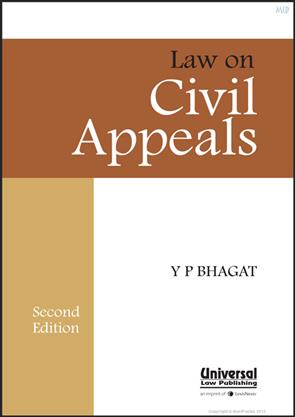Law on Civil Appeals
no information available
The law of civil procedure is a vital bridge connecting two disparate wards. The substantive law that defines the rights and liabilities of Judiciary, on the one hand and the day-to-day of judicial officers and law officials who administer the law, on the other, that is the rules of procedures. The first and most important benefit of this work is its capacity to promote consistency and predictability in judicial decision-making. These attributes are the very hallmarks of the rule of law and they are no less important in the realm of procedural law than in the realm of substantive law. Judges should aim to apply principles of civil procedures with reasonable consistency and the task is made much easier if legal practitioners have a fuller understanding of the background of each rule and its application. This book has the merit of being specifically tailored to the unique features of the law and courts. It places this book in a class of its own. It is rare enough to find a legal publication like the present one having potentiality to focus on laws. This book has two purposes, first, to serve as a text of law and second, to provide a reference manual. Every page of this book is crammed full of useful laws and tips which may benefit not only the lawyers but the judges as well. All latest important case law have been included in this edition of book with full discussion which could make easy the complex questions of law including the theory of ?substantial question of law?. Easy handling and convenient portability along with exhaustive studies on legal topics is considered an important aspect in this book. This book may be much beneficial for the legal activists including the judges and the lawyers. ... Read more Read less











